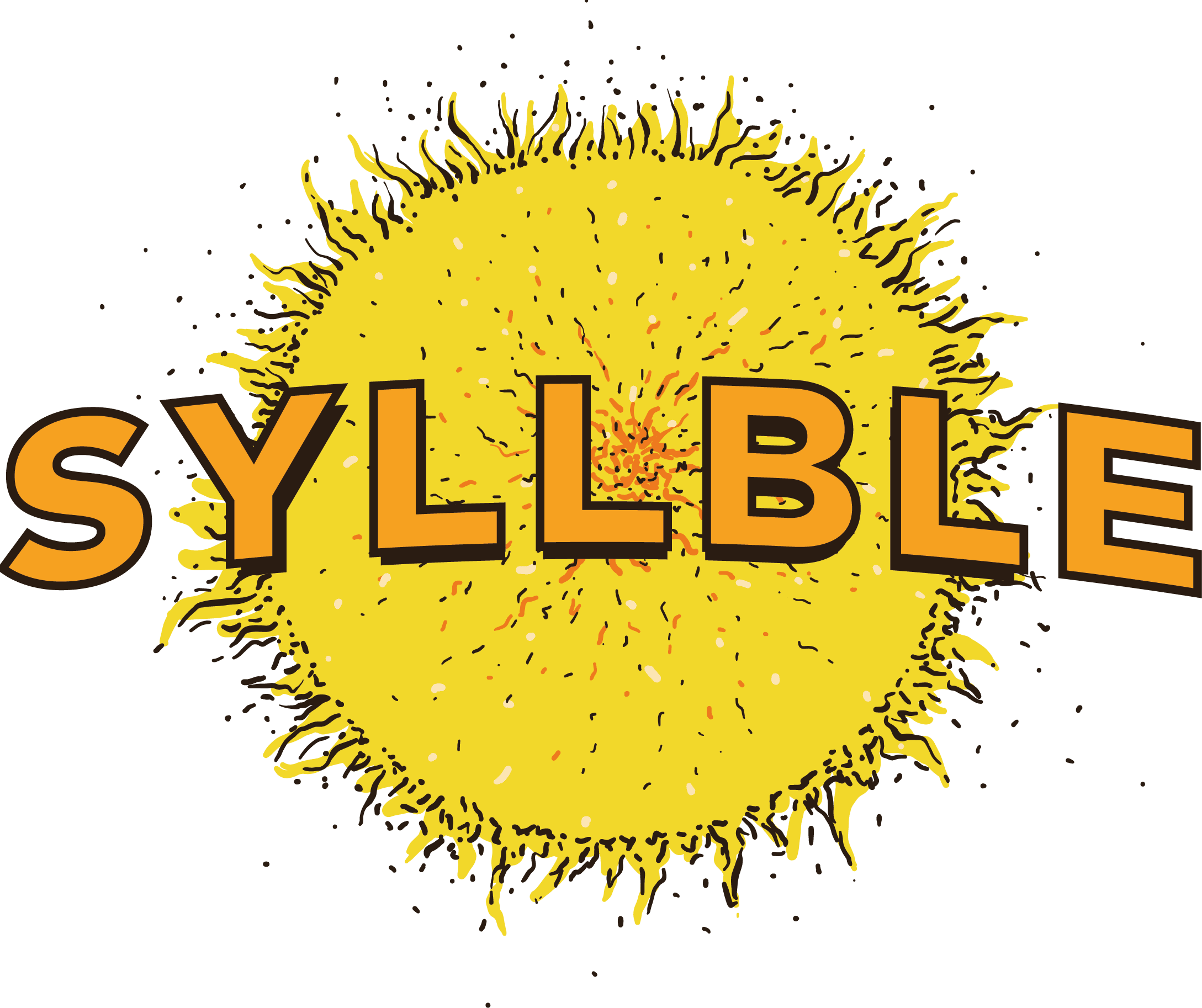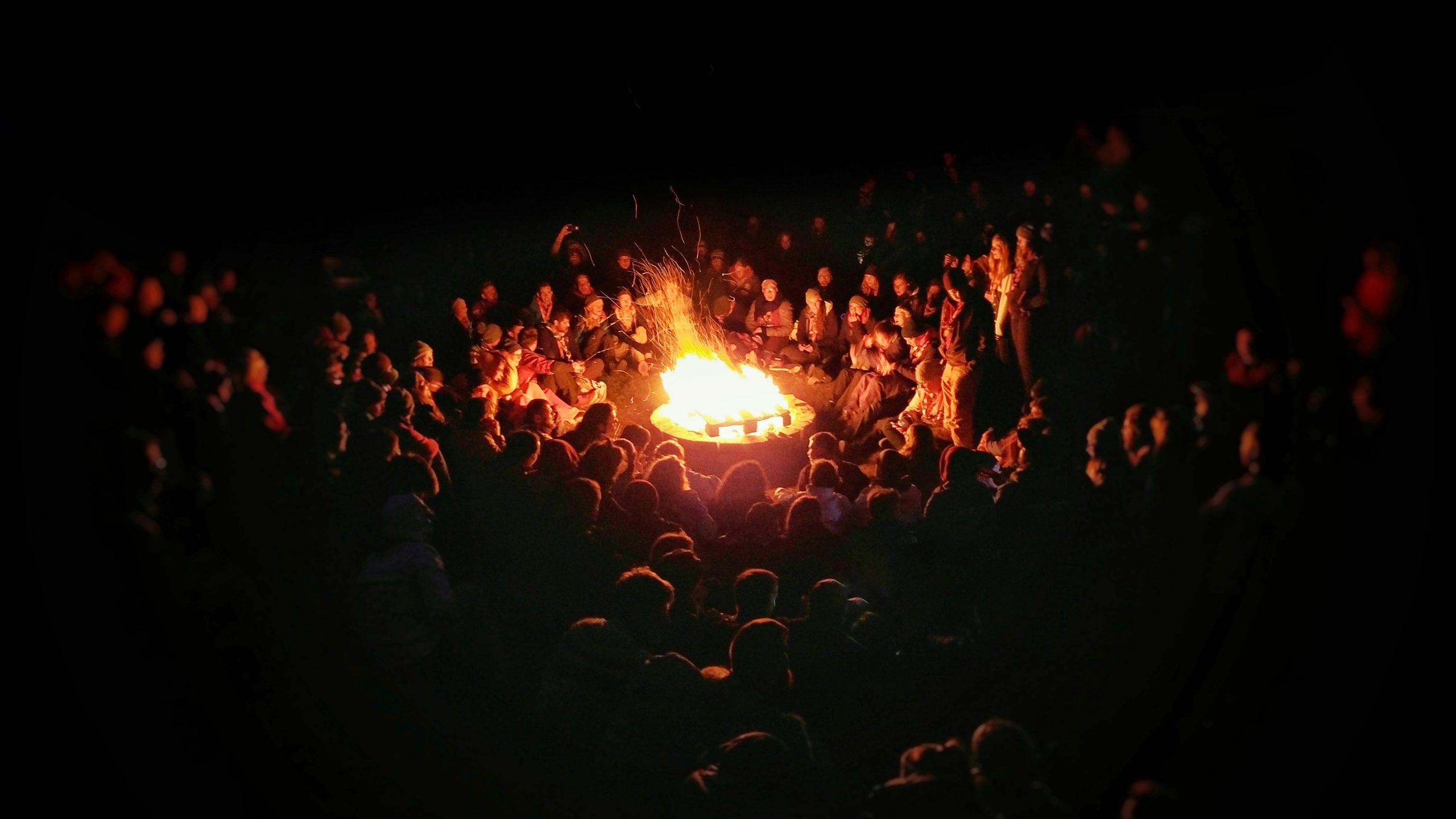This is blog two in a three-part series on Syllble, a science fiction and fantasy production house and publisher. This blog details Syllble and examines the aspects that make it unique and original. Part three will explore Syllble’s vision and future.
Stuck in a rut from writing in solitude, Fabrice Guerrier found his remedy in collaboration. While feeling isolated and unmotivated writing on his own, he observed the potential and possibilities that arose from hosting writers who worked together in groups to create short stories and other works of fiction.
During the very first meetup that he organized for aspiring novelists from his creative community in 2017, Mr. Guerrier observed strangers become friends, peer encouragement and idea-sharing, and the publication of what would be Syllble’s first collaborative novel.
The magic of the first and all the early workshops that he hosted for creative writers in the Washington, D.C., area led Mr. Guerrier to establish Syllble, which started as a literary arts organization but is now a science fiction and fantasy production house and publisher, in 2018.
Specifically, it was the magical power of creative collaboration that galvanized him and expanded his mind as to what was possible in the literary field.
He saw an opportunity to move the needle by taking an approach that is not only bold and novel to the literary arts, but one that defies convention and hopes to turn the status quo on its head, as a production house whose artists own the rights to their work and whose work is produced in collectives, or in groups of artists, through collaborative worldbuilding is uncommon in the literary field.

Collectives have historically served as vehicles to give power and ownership over content back to those who create it – the artists themselves – as opposed to more common business structures with hierarchical ownership. They mostly have served sculptors, painters, and musicians. Syllble’s take on them, however, is unique in that its collectives primarily focus on the literary arts and on marginalized and underrepresented groups of people.
“This is just a different way, a different way to do things,” Mr. Guerrier said. “We’re creating a different pathway that has not existed before on the planet, in the history of humanity. We’re doing something radically new.
“Syllble creators have ownership over their intellectual property, and they are more empowered. They are able to feel more connected. They’re able to break their writers’ block. They’re more confident. They’re more accountable. They’re able to be more productive, and economically, they have more power in that sense, too.”
Syllble’s incorporation of collectives affixes a community approach to the literary process, one that is rooted in collaboration and that provides a space for diverse authors to get together to brainstorm ideas and jointly create sci-fi and fantasy novels through worldbuilding, a process by which authors construct an original and imaginary world or universe.
In other words, if Syllble’s foundation is the artist collective model, its three main pillars are collaboration, worldbuilding and publishing, as the collectives provide a gathering place for Syllble writers to harness the power and potential of its three “pillar” elements.
The Sauúti Collective, which formed over a year ago, is one of the production house’s core collectives, and Wole Talabi manages it. Mr. Talabi agrees with Mr. Guerrier’s assessment that Syllble’s foundational piece and pillars are its biggest draws to aspiring writers.
“I think that’s the main selling point of Syllble,” said Mr. Talabi, who also writes for the Sauúti Collective. “The main thing that makes it unique is having this template and space, this platform, for collaboratively creating fictional worlds.”
The world that Syllble’s Sauúti Collective has created, the Sauútiverse, is a five-planet system orbiting a binary star. It is deeply rooted in a variety of African mythology, language, and culture. “Sauúti” is taken from the word “Sauti,” which means “voice” in Swahili. The Sauúti world weaves in an intricate magic system based on sound, oral traditions, and music, and it includes the science-fiction elements of artificial intelligence and space flight, as well as both humanoid and non-humanoid creatures.
Members of the Collective come together weekly in virtual meeting rooms to complete their anthology of short stories, which are all connected by the Sauútiverse, since Syllble Studios reached a book deal with Android Press earlier this year to publish an anthology on the Sauútiverse, which is the first collaborative African fantasy universe.
Mr. Talabi said there is a lot of variety among members of the Sauúti Collective, as participants range the planet, from Australia to the east coast of the United States and everywhere in between, with every contributor either African or of the African diaspora. He himself is based in Malaysia.
While Mr. Talabi said there are challenges to working with and creating in a global community of creatives in fictional worlds, he shared that participating in the Sauúti Collective has been a great experience, especially creatively in the way everything has come together.
“The thing that you produce at the end, after working with other people, taking all these ideas from people from different backgrounds, and synthesizing all of that into one whole – that’s a unique thing, and the experience of it is unique as well,” Mr. Talabi said.
Collaboration and worldbuilding like those used in the Sauúti Collective are not concepts original to the arts at large, but Syllbe’s incorporation of them into the literary field through its collectives offers an innovative and inclusive approach to the classical paradigm of individualistic literary writing. The collectives promote a form of storytelling that is not only collaborative but unique in that they intrinsically converge the viewpoints and thoughts of different people who otherwise might not know each other, let alone create together, as most collectives, like the Sauúti Collective, comprise individuals from across the globe who have different backgrounds and varying life experiences.

John Cho, who is based in Maryland, has worked as a consult for the National Academy of Sciences’ Science and Entertainment Exchange, advising TV shows and films looking for realistic outcomes for science fiction-genre TV series and movie scripts. He also is a writer in Syllble’s Orion Paradigm world. He said the collaborative nature of Syllble’s artist collective model means that just by meeting and working together, authors inadvertently also experience important creative breakthroughs.
“They discover new intersections in their culture and in their experience with others,” he said. “They also discover how these fictional worlds can collide and deal with tension, and I think that every great story needs a good healthy dose of tension and conflict. What people generally see as ‘winning formulas’ are becoming just that with Syllble – they’re becoming formulas.”
Syllble’s foundation of collectives and its pillars of collaboration, worldbuilding and publishing have become winning formulas for the organization as, over the years, more than 200 authors have worked in Syllbe’s different collectives, with each collective working in its own unique, distinct world that it has created. Mr. Talabi and Mr. Cho work in different collectives, each of which represents a different fictional world, and most authors only work in one collective.
Syllble’s path to having had more than two hundred creators collaborate in more than a dozen collectives has not come without challenges for the production house, but it is the way that Syllble has responded to its challenges that enable its magic and uniqueness to triumph.
The organization has demonstrated an ability to adapt and shift its focus and priorities to shed unideal outcomes and parlay successful outcomes into best practices that are augmented and built upon. Syllble began as a space for writers in the Washington, D.C. area, where Mr. Guerrier was based in 2017, to meet in-person to collaborate on short fiction stories. The model was for books to be started, completed, and published within a span of two weeks. However, Mr. Guerrier has kept adapting the model for Syllble, as needed, as new findings surface.
In recent years, and aided by the COVID-19 pandemic, Mr. Guerrier’s production house mostly has consisted of writers spanning the globe who come together via virtual video calls to forge an online community, which has enabled Mr. Guerrier, who is now based in Los Angeles, to more easily recruit and retain writers. The current, almost completely virtual nature of all Syllble’s collectives is a stark contrast to the in-person-only meetups that Mr. Guerrier held in Washington, D.C., in the early stages of the production house’s existence.
Mr. Guerrier said that Syllble’s evolution also has included moving its identity away from being a one-dimensional organization that is exclusive to literary writing to a multimedia publishing house that is meant for all types of diverse artists and creators. Mr. Guerrier even changed the formal name to Syllble Studios.
“We have experimented in different products that we’ve put out from the worldbuilding process, whether it’s short stories, whether it’s illustration, whether it’s a collaborative novel that we’ve formed, the micro novel,” Mr. Guerrier said.
“What we’re trying to do from the ground level is to get creators on the margins to create fictional worlds together and have ownership of their content. And then use worldbuilding, in the form of collectives, to grow and express, and use that content on different mediums. We started with writers, and then we started collaborating with visual artists, and now we’re slowly expanding the repertoire to include filmmakers, to include gamers, animators. And that’s kind of the long-term vision.”
This is blog two in a three-part series on Syllble, a science fiction and fantasy production house and publisher. This blog details Syllble and examines the aspects that make it unique and original. Part three will explore Syllble’s vision and future. Drew Sullivan wrote this three-part series after interviewing writers and members of the Syllble community.
Read Blog 1 “The Story of Syllble”
Read Blog 3 “Syllble: A Creative Moonshot“

